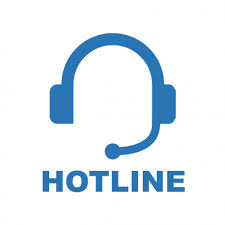 Finding the right drug rehab center is crucial, given the time, energy, and money you’ll spend getting treatment. Luckily, there are lots of facilities in the US to choose from. So whether you are choosing drug treatment for a friend, yourself, or a loved one, you are bound to find something that works.
Finding the right drug rehab center is crucial, given the time, energy, and money you’ll spend getting treatment. Luckily, there are lots of facilities in the US to choose from. So whether you are choosing drug treatment for a friend, yourself, or a loved one, you are bound to find something that works.
With so many rehab centers, it can be confusing and overwhelming. In this article, we will take you through the fundamentals of finding a good drug rehab facility.
Note: there are many treatment paths to recovery. Some are clinical, and others are non-clinical. In this guide, we focus on clinical addiction treatment programs and facilities.
Contents
- 1 What is a drug rehab facility?
- 2 Qualities of a quality drug rehab facility
- 2.1 Matching assessment to treatment
- 2.2 Integrated treatment
- 2.3 Links to continuing care
- 2.4 A respectful and well-maintained environment
- 2.5 Family involvement
- 2.6 Patient retention
- 2.7 Practices based on evidence
- 2.8 Trained and professional staff
- 2.9 Personalized care and approach to treatment
- 2.10 Measuring program performance
- 3 The levels of care in a drug rehab facility
- 4 Are all drug rehab centers covered by insurance?
- 5 What are drug addiction hotlines?
- 6 Types of hotlines
- 7 Want to check into a drug rehab facility?
- 8 FAQs
- 8.0.1 Can I go to jail for calling a drug addiction hotline?
- 8.0.2 Do I have to go to a drug rehab facility?
- 8.0.3 Do I have to do inpatient addiction treatment?
- 8.0.4 Can drug rehab facilities handle medical emergencies?
- 8.0.5 Can my family visit me in a drug rehab facility?
- 8.0.6 Does my insurance cover addiction treatment?
- 8.0.7 Are there success stories of addiction treatment?
What is a drug rehab facility?
A drug rehab facility is simply a clinic built to provide medical treatments and therapies for drug addictions. You can think of them as specialized private hospitals that focus on patients who need treatment for drug addiction.
The staff in the facilities have gone through relevant training. Some of them have experienced the effects of drug addiction first hand. As such, they are uniquely positioned to empathize and understand what it means to be an addict. They acknowledge that it is a struggle for both the addict and their close relatives.
Drug addiction rehab facilities often have a team of professionals, including psychiatrists, counselors, doctors, psychologists, therapists, recovery support workers, and nurses. Collectively, the staff provide a wholesome experience and guide the addict through a safe recovery.
What’s more, the drug rehab facilities understand that the situations surrounding addiction for everyone are different. With this insight, they work to provide individualized treatments, and if need be, they are flexible to change treatment programs.
Qualities of a quality drug rehab facility
Drug rehab facilities are designed to achieve the same purpose; treat addiction. But like it is with other services, these facilities differ in the quality of addiction treatment they offer. And since your treatment experience hinges on choosing the best drug rehab facility, we’ve taken the liberty of outlining qualities that top rehab facilities possess.
Matching assessment to treatment
Once one is checked into a rehab facility, they are not placed in a treatment program immediately. On the contrary, they go through a screening process to determine the substance they abuse, the dosage, and co-occurring conditions. The facility then follows this up with a comprehensive assessment of the medical and psychiatric history, social networks, and family. They also dig into the recovery resources one can access.
All this information is compiled and used to determine the best treatment for the addict. Failure to conduct a comprehensive screening can compromise the recovery process.
Integrated treatment
Rehab facilities are all about ridding the body of its addiction to an abused substance. But the process of recovery isn’t as easy. Drug addiction treatment often involves having to deal with co-occurring mental conditions, including anxiety and depression. Moreover, they should have equipment to handle physical health problems associated with the addiction. For instance, for alcoholics, liver disease, high blood pressure, stroke, and heart disease are common.
For a successful recovery, the facility should treat the patient as a whole. If they don’t, the patient is likely to relapse.
Links to continuing care
What happens when one leaves the rehab? When the support system that kept them strong is gone? Unfortunately, many addicts relapse. This does not mean they had not recovered, but that there wasn’t the ongoing care was lacking.
Ongoing care is an essential element to recovery support when patients leave the facility. A rehab facility that emphasizes ongoing care will do more than just provide phone numbers to call. Instead, they will provide links to specific community resources, peer support groups, recovery residences, and health care providers. The warm ‘send-off,’ and introduction to local recovery resources yields better results.
A respectful and well-maintained environment
A rehab facility should have an environment similar to what quality medical facilities have. For instance, if they have diabetes and oncology departments, they should be well equipped and put together. While it’s not necessary to have luxury mattresses and palm trees in the facility, it must be clean and comfortable.
Creating a respectable environment for individuals struggling with addiction is crucial because they often feel like they’ve lost their dignity. A clean and respectful environment enables them to get a piece of what they’ve lost.
Family involvement
Drug rehab facilities are not all about isolating individuals in treatment. In fact, allowing supervised interaction with their loved ones throughout the treatment can stir up the motivation to complete the program. With family involvement, it feels like they are in it together, and there are higher chances of them staying sober after the treatment.
Moreover, quality facilities conduct trainings that help clarify family roles, encourage boundary setting, and how to avoid temptations. In the end, the family unit gets stronger, and they all learn to adapt to the changes.
Patient retention
We’ve said it before; addiction treatment is not easy. This is especially when the withdrawal symptoms are severe. Many patients drop out of their programs in the first month. And while it’s an easy out for the addict, the decision comes with serious consequences.
In light of this, quality rehab facilities employ unique strategies to improve patient retention. These strategies can include fostering mutual trust by transparency in the rules and clear communication. The expectations should also be laid bare, lest the trust is broken halfway through the program.
Some quality rehab facilities take it a step further by offering empathic counseling sessions that build strong facility-patient relationships. Also, rewards and incentives for abstinence, and consistent attendance work great.
Practices based on evidence
Quality drug rehabs use evidence-based practices and have better results. Aside from their psychological interventions, they also include medication approved by the FDA. These medications include methadone, buprenorphine, acamprosate, and naltrexone. Other additions, including psychiatric medication to combat psychiatric conditions, work wonders.
Trained and professional staff
It goes without saying that quality drug rehab facilities require highly trained professionals to handle the treatment. And since addiction treatment is multifaceted, the staff should be qualified in different disciplines, including psychiatry, medicine, addiction, and spirituality. These qualifications help in uncovering the root cause of addiction and consequently treating the patient.
As proof of their qualification, the staff should have board certifications and licenses in addition to their degrees.
Personalized care and approach to treatment
The facility should treat patients like individuals. Based on the comprehensive screening and quality assessment, they should develop a program that works and considers their needs. Drug addiction treatment is not a one size fits all venture. Any facility that approaches it as such is setting up the patients for failure. The needs that the facility should consider are cultural backgrounds, age, and minority communities like the LGBT.
Measuring program performance
An indicator of a quality rehab facility is the presence of a measurement system that tracks how patients respond to their treatment. Just like blood pressure routine check-ups in hypertension treatment, drug addiction treatment needs to collect mental health key signs to track the effectiveness or lack thereof of the program. Following the measurement, the facility should be ready to make necessary adjustments.
If a facility lacks metrics, they cannot tell whether a patient is improving or not. Essentially, they have no way of showcasing progress.
Note: while many drug rehab centers are genuine and want to help individuals and their families, some are not. You should always beware of the ‘bad seed’ in the industry.
The levels of care in a drug rehab facility
The American Society for Addiction has grouped drug addiction treatment and care into four levels. Each level represents a category of treatment services and programs.
Level 1: outpatient services
This program has an individual attending treatment at a rehab facility every day or several days a week. Collectively, the sessions last about 9 hours a week for adults and not less than six for adolescents. The length of the sessions leaves the patient with enough time to return home or complete other responsibilities.
Level 2: partial hospitalization and intensive outpatient
It is similar to level one, only that the sessions are more and longer. But despite the lengthy treatment sessions, individuals have time to go home or complete responsibilities at work or school.
Level 3: low to high-intensity residential services
This treatment program involves 24-hour living support and a programmed structure. For those who have co-occurring disorders, special services, and trained staff are available.
Level 4: intensive inpatient treatment program
This program includes 24-hour nursing care, medical professionals, counseling sessions, and physician care. It is ideal for individuals struggling with mental and physical health instability and are almost always in danger.
Are all drug rehab centers covered by insurance?
Unfortunately, not all drug rehab centers are covered by insurance. Also, you cannot tell which rehab facilities are covered and which ones aren’t just from their names. You will have to either call a drug addiction hotline for recommendations or your insurance company. The former is a straight forward process, but if you chose the insurance company, below is a guide to help you through it.
Note: you should have your insurance card in hand.
- Enquire about your insurance plan: is it Medicare, Exclusive Provider Organisations, Health Maintenance Organisations, or Preferred Provider Organisations?
- Ask if your plan requires you to get authorization, assessment, or a referral to cover drug addiction treatment. Remember that the requirements might be different depending on whether you are looking for inpatient treatment, detoxification services, or partial hospitalization treatment.
- When you get this information, inform the insurance representative you are hunting for a drug rehab center in your area.
- The representative can provide a list of drug addiction treatment programs they cover in your area, as well as a list of drug rehab facilities. Request for these lists to be emailed to you separately.
- Ask which of the programs on the list are out-network or in-network for your insurance plan. Also, as for the co-pays associated with the same.
What are drug addiction hotlines?
 You’ve probably come across drug addiction hotline adverts either online or in mainstream media. How do they fit in the drug rehabilitation process? Are they worth looking into?
You’ve probably come across drug addiction hotline adverts either online or in mainstream media. How do they fit in the drug rehabilitation process? Are they worth looking into?
Well, drug addiction is difficult for individuals and their families. But even with the apparent negative effects it has, it takes courage for one to admit they need help. Therefore, to make the process easier, organizations and the federal government set up drug addiction hotlines. These hotlines offer information on addiction treatment, facilities, and other recovery resources.
The hotlines are open 24/7 and are manned by specialists who have battled addiction or supported an addict through treatment. Because of their experience, they are empathic and more understanding. They answer questions without judgment and do not pressure you into treatment.
Even better, the hotlines are free to call, and the conversations held are private. The specialist will not pressure you for your personal details. And even when you offer this information, they won’t share it with a third party. Since you remain anonymous, it means you cannot be jailed for speaking out or lose your job in the process. With that said, bear in mind that not seeking addiction treatment has more consequences in the long run. These include health complications, crime, and losing your children.
Types of hotlines
There are two broad categories of hotlines:
- Private hotlines
- Public hotlines
Though they are all created to help addicts recover, they have different models. The private addiction hotlines will provide general treatment information but, in the end, encourage you to seek treatment at a specific facility. You can think of private hotlines like marketing avenues for private rehab facilities.
On the flip side, public addiction hotlines aren’t affiliated to a specific rehab facility or network. They simply provide you with information about rehab facilities in your area, depending on your current situation.
Just like with rehab facilities, there are unscrupulous drug addiction hotlines as well. You should, therefore, tread carefully and only use top hotlines. One sure way of telling a hotline is a fraud is that they will offer kickbacks and bonuses in exchange for picking the rehab facility they recommend.
Want to check into a drug rehab facility?
So far, so good. Now you know how to get the best rehab facility and how you can make payments. Think over the decision to commit to a program. No, it is not going to be easy, but it will be worth your while. Individuals who’ve completed programs say that it is by far the best decisions they’ve made. Conquering drug addiction will vastly improve your quality of life and reduce the stress on your relationships.
FAQs
Can I go to jail for calling a drug addiction hotline?
Absolutely not. The conversations on these calls are private. According to the law, the hotlines do not have the luxury of sharing the information you disclose during the call to third parties. But even then, it’s important to bear in mind that not seeking help for your addiction can do more harm than good in the long run.
Do I have to go to a drug rehab facility?
Addiction is tricky business. It can have you thinking you have it handled only for it to sneak up on you and turn your life upside down when you least expect it. The reality is will power is not enough to beat addiction. Everyone needs help regardless of the level of addiction.
Do I have to do inpatient addiction treatment?
The type of drug addiction treatment you get depends on a couple of factors. At the top of the list is the level of addiction and if you have a support system at home. If the addiction is severe and withdrawal symptoms are in play, an inpatient program is best. It will help you get through the tough treatment stages faster and with ample support.
Can drug rehab facilities handle medical emergencies?
Good rehab facilities have equipment to handle medical emergencies. Given that addiction comes with a host of health problems, rehab centers are often prepared to deal with common medical emergencies. However, they are not like hospitals, and if things get out of hand, you might find yourself in a regular hospital.
Can my family visit me in a drug rehab facility?
Yes, they can. Many rehab facilities often allow visitations as part of the support and treatment program. Some have therapies for families to help with the transition back home when the program is complete.
Does my insurance cover addiction treatment?
It depends on the plan you have. As such, you have to confirm with your insurance company before you get into an addiction program. Also, call the rehab facility and check if they accept insurance payments.
Are there success stories of addiction treatment?
Yes, there are. You’ll be shocked at the number of people who are in remission. If you want motivation from success stories, you can watch videos online.
